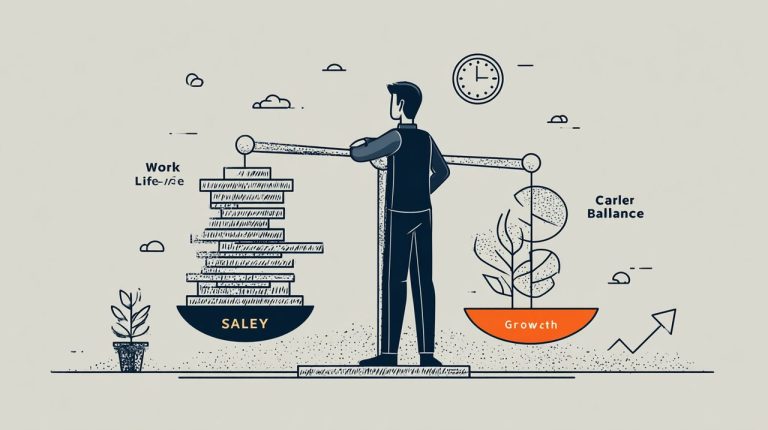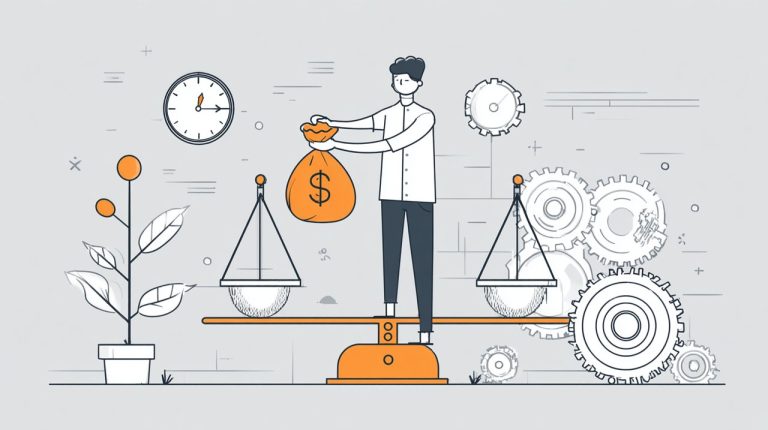The Modern Quest for Direction: Navigating an Abundance of Guides
In our fast-paced world, overflowing with information and endless possibilities, finding true clarity in your personal and professional life can feel like a defining challenge. Many of us reach a crossroads, actively seeking effective guidance to align our deepest aspirations with concrete, actionable steps.
This natural human desire for direction has naturally given rise to a diverse array of methodologies, each offering its own unique path to self-discovery and growth. Among these evolving options, two prominent approaches stand out: the innovative LifePath Alignment Evaluator and the time-honored practice of Traditional Coaching.
Understanding their core philosophies and practical applications isn’t just helpful; it’s crucial for anyone truly ready to invest in their future and chart a course that feels right.
LifePath Alignment Evaluator: Architecting Your Future with Data
Imagine, for a moment, a sophisticated system that can analyze a vast amount of your personal data. It pinpoints your strengths, preferences, and key areas for growth with remarkable precision. This is essentially how the LifePath Alignment Evaluator works.
Think of it as an algorithmic architect for your future. It constructs a data-driven blueprint, leveraging advanced analytics, psychometric assessments, and behavioral science to map out optimal pathways tailored just for you. For a comprehensive understanding of its capabilities and to see how it can precisely align with your aspirations, the LifePath Alignment Evaluator offers invaluable insights LifePath Alignment Evaluator.
This method truly shines when it comes to delivering objective, quantifiable insights, often with impressive speed. It can uncover patterns and correlations that might easily be missed by human observation, giving you a dispassionate, evidence-based perspective on your trajectory. If you value clear metrics and strategic planning, this approach offers a compelling promise of efficiency and precision.

The Algorithmic Compass: Precision and Patterns
The LifePath Alignment Evaluator truly functions like a highly advanced compass, but one meticulously calibrated to your unique data points. It processes a wide range of information, from your career history and skill sets to your personal values and cognitive styles.
The result? Often, a detailed report that clearly highlights areas of natural alignment and potential friction, offering you a clear snapshot of where you stand.
This approach provides a strategic, data-backed foundation for decision-making, effectively minimizing subjective bias.
Let’s consider Alex, for instance, who felt stuck in a career rut. The Evaluator analyzed Alex’s skills, interests, and even current market trends. It then suggested a pivot into a related, high-growth sector—a concrete, data-driven recommendation Alex hadn’t even considered. It’s about seeing possibilities you might otherwise overlook.
Beyond the Numbers: Where Human Insight Matters
While the Evaluator offers unparalleled analytical power, it’s important to recognize that its reliance on data also introduces some inherent limitations. It can, for example, struggle with the subtle nuances of human emotion, the complexities of interpersonal dynamics, or those quiet, evolving shifts in personal values that simply aren’t easily quantifiable.
A cold, hard data point might recommend a perfectly logical path, yet completely miss the emotional resonance or the deep intrinsic motivation that’s truly required for genuine fulfillment. It’s like having a perfect map but no sense of direction for your heart.
This system provides answers based on what is known, but it may not fully account for life’s unexpected turns or the deep-seated, often wonderfully irrational, human desires. The Evaluator is undoubtedly a brilliant architect of plans, but it simply lacks the capacity for empathy or the ability to truly listen to an unspoken fear.
Traditional Coaching: The Human Compass for Uncharted Territories
In stark contrast, Traditional Coaching steps into the role of a human compass. It guides individuals through their personal landscapes with a unique blend of empathy and deep understanding. This method is fundamentally built on a foundation of dialogue, trust, and a truly co-creative relationship between coach and client.
It emphasizes active listening, insightful questioning, and harnesses the profound power of human connection to facilitate self-discovery. Coaches provide a personalized, non-judgmental space for you to explore, helping you uncover your own answers and build your internal resources.
This process is far less about receiving prescriptive advice and much more about fostering an environment where profound personal growth can organically emerge. It’s a journey taken together, with the coach acting as your supportive, reflective partner every step of the way.

The Art of Human Connection: Empathy and Evolution
A traditional coach truly excels at navigating the subjective, often wonderfully messy, terrain of human experience. They deeply understand that true transformation often stems from deep introspection and emotional processing, not just pure logical analysis.
The coach’s role is to help you articulate your core values, courageously overcome limiting beliefs, and cultivate a powerful sense of resilience.
This methodology fosters self-awareness and intrinsic motivation, ultimately leading to sustainable and meaningful change.
Think of Maria, for example, who struggled with persistent self-doubt despite her many accomplishments. A traditional coach helped Maria explore the very roots of her insecurity, not by handing her a data report, but through a series of compassionate, insightful conversations. This profound human connection allowed Maria to gradually reframe her self-perception and build genuine confidence from within.
The Nuance of Guidance: Beyond Prescriptive Paths
The remarkable strength of Traditional Coaching lies in its incredible adaptability and its unwavering focus on your unique, individual journey. However, this deeply personalized approach can be more subjective and often requires a greater time commitment from you.
It’s important to remember that progress here may not always be linear or easily quantifiable, as it often involves subtle, yet powerful, shifts in mindset and behavior that organically unfold over time.
The effectiveness of coaching also heavily depends on the chemistry and rapport between you and your coach. While deeply enriching, the process might feel less structured for those who prefer clear-cut instructions or immediate, measurable results. It truly is a journey of exploration, not always a direct route to a predetermined destination.
The Decisive Crossroads: LifePath Evaluator vs. Traditional Coaching
So, how do you choose? The decision between these two powerful guides ultimately boils down to fundamental differences in their approach, cost, and the very nature of the support they offer. Understanding these distinctions is key.
It helps clarify which method will truly align best with your immediate needs and your long-term aspirations, setting you up for success.

Methodologies Unpacked: Data vs. Dialogue
-
LifePath Alignment Evaluator:
- Methodology: It’s all about data-driven, algorithmic analysis and psychometric assessments.
- Focus: Pinpointing objective patterns, delivering quantifiable insights, and providing strategic recommendations.
- Cost: Often a one-time fee or subscription for reports and platform access, potentially a lower overall investment.
- Time: Expect rapid results and quick insights, with less ongoing personal interaction.
-
Traditional Coaching:
- Methodology: Built on dialogue, strong relational bonds, empathetic questioning, and active listening.
- Focus: Navigating subjective experience, enhancing emotional intelligence, fostering deep personal growth, and facilitating behavioral change.
- Cost: Typically involves per-session or package fees, generally a higher long-term investment.
- Time: Involves ongoing sessions over weeks or months, leading to deeper, more sustained engagement.
Outcomes and Expectations: Quantifiable vs. Transformative
When you’re considering the outcomes, the LifePath Alignment Evaluator typically provides clear, actionable recommendations. These are firmly based on statistical probabilities and your personal data. It’s truly ideal if you’re seeking concrete directions, considering a career pivot, or want specific skill development plans. The results are often tangible and measurable, offering a comforting sense of certainty.
Traditional Coaching, on the other hand, aims for holistic personal transformation. Its outcomes are less about specific directives and more about fostering resilience, enhancing self-awareness, and developing the internal resources you need to navigate any challenge life throws your way. The impact can be profound, leading to sustainable shifts in your perspective and behavior, though these are sometimes harder to quantify immediately.
So, if you need a quick, data-backed career direction, the Evaluator might be your perfect match. But if your goal is to overcome deep-seated insecurities or develop a powerful leadership presence, the sustained, empathetic support of a traditional coach would likely be far more effective.
Charting Your Course: Choosing the Right Guide for Your Journey
Ultimately, there’s no single “superior” method that works for everyone. The best choice is simply the one that perfectly suits your individual preferences and current needs. Your decision truly hinges on how you prefer to receive guidance, the specific nature of your goals, and the depth of support you’re seeking.
It’s a deeply personal decision, reflecting your unique approach to personal growth. To help you reflect on your path, consider these key questions:
- Do you prioritize objective data and quick, actionable insights for specific challenges you’re facing?
- Are you seeking a deep, empathetic, and ongoing partnership to explore more complex personal issues?
- What is your budget, and how much time are you genuinely willing to commit to the process?
- Do you thrive on structured, analytical feedback, or do you prefer a more fluid, conversational exploration?
Both the LifePath Alignment Evaluator and Traditional Coaching offer powerful avenues for growth. The algorithmic architect provides a precise map based on your data, guiding you with clarity. Meanwhile, the human compass offers a supportive hand as you bravely navigate uncharted emotional territories.
The most effective guide isn’t about technology or tradition; it’s the one that resonates most deeply with your spirit of inquiry and your personal ambition for self-improvement. So, take a moment to reflect on your current needs and aspirations.
Understanding yourself is always the first, most crucial step in choosing the guide that will truly illuminate your unique journey ahead. Your personal growth awaits the right kind of support.
💡 Frequently Asked Questions
The article discusses two prominent approaches for personal and professional guidance: the innovative LifePath Alignment Evaluator and the time-honored practice of Traditional Coaching.
The LifePath Alignment Evaluator analyzes personal data using advanced analytics, psychometric assessments, and behavioral science to create a data-driven blueprint of optimal pathways. Its main advantages are delivering objective, quantifiable insights with impressive speed and precision, offering an evidence-based perspective.
Traditional Coaching is a human-centric method built on dialogue, trust, and a co-creative relationship between coach and client. It provides a personalized, non-judgmental space to explore, helping to uncover personal answers, build internal resources, and foster self-awareness and intrinsic motivation for sustainable, meaningful change.
The LifePath Alignment Evaluator uses data-driven, algorithmic analysis to provide objective, quantifiable insights and strategic recommendations with rapid results. Traditional Coaching, conversely, relies on dialogue, empathy, and human connection to navigate subjective experiences, foster deep personal growth, and achieve holistic personal transformation, which often unfolds over a longer period.








